|
Dear Colleagues,
I am pleased to include another issue of RFS Briefings with some timely and encouraging updates on women in science.
In honor of Black History Month we continue to highlight the leadership and contributions of Black women in science. Please take some time this month to watch several impressive presentations we have hosted in the past year.
Please continue to share important news and opportunities with us so that we may share it with you, and others who are committed to supporting the careers of exceptional women in science.
Stay safe and sound,
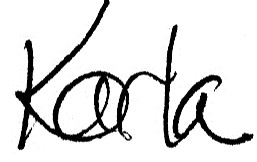
Karla Shepard Rubinger
Executive Director
Rosalind Franklin Society
www.rosalindfranklinsociety.org

Female scientists can advance by saying: ‘Yes, I’ll do it’
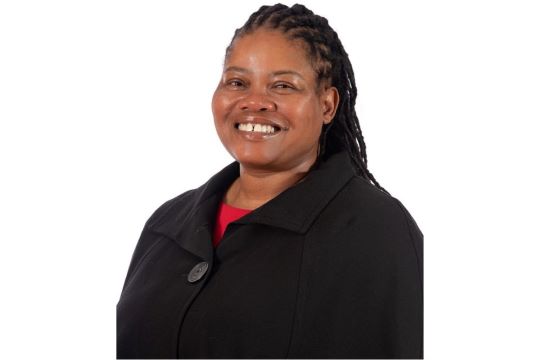
In this article, Pontsho Maruping, deputy managing director of operations and business processes at the South African Radio Astronomy Observatory (SARAO) in Cape Town, describes a career transition from mining to space, and how she juggles the expectations of male and female colleagues. Maruping’s career story is the fourth of eight in a series of articles in Nature that profiles female scientists in sub-Saharan Africa. Read more.
Fifteen articles to celebrate International Day of Women and Girls in Science.
Friday, February 11, 2022, was the International Day of Women and Girls in Science, and Orion Magazine staff pulled together fifteen of our favorite features on female leadership in the sciences. Read more.
Markita del Carpio Landry: Representation and responsibility in STEM.
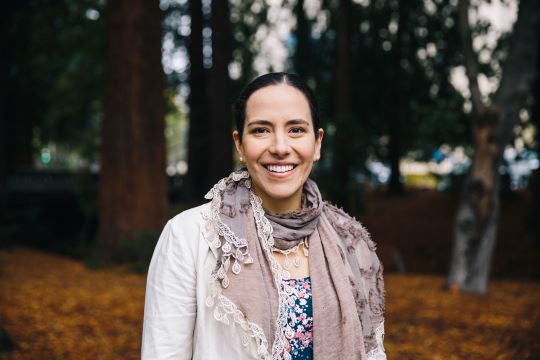
“The strongest role model that I’ve had in my life is my mom,” says Markita del Carpio Landry. “She was born at a time and a place in Bolivia where careers—especially careers in cutting-edge technologies like computer science—were extraordinarily rare and completely unheard of for women.” Read more.
A day in the life of a CEO: Connecting with users while managing a business with Vlada Bortnik.
Vlada Bortnik is co-founder and CEO of Marco Polo, the popular video communication app that is changing the paradigm for millions of people about how we stay in touch. Read more.
President Terri Goss Kinzy named to National Academies committee.
Illinois State University President Terri Goss Kinzy will chair a national committee examining the long-term impact of the pandemic on STEM (science, technology, engineering, and mathematics) careers for women. Read more.
Mathematician Bianca Viray invites everyone to the table.
Bianca Viray is a 2020 Simons Fellow in Mathematics. Viray is also an active organizer in the mathematical community, especially as a proponent against racial and gender discrimination and sexual harassment in the field. In 2022, she was named an Association for Women in Mathematics Fellow. Read more.
Nasal spray booster keeps COVID-19 at bay.
Akiko Iwasaki, a speaker at our year-end conference last year who works at HHMI, a member of our Council of Academic Institutions, developed a new vaccine strategy in mice that uses an mRNA coronavirus vaccine injection. This approach protected mice from disease caused by exposure to SARS-CoV-2. Read more.
Science & PINS Prize for Neuromodulation.
Apply today for the 2022 Science-PINS Prize for Neuromodulation! The winner is awarded US$25,000 and publication of their essay in the journal Science. Read more.
Woman- and POC-owned VC and private equity firms have hit an all-time high—but they still raise just a sliver of overall funding.
There were at least 627 private-equity and venture-capital firms majority-owned by women and/or ethnic minorities in the United States in 2021, up 25% from a year earlier and an all-time high, according to a new annual report published by Fairview. Read more.
Biden’s top science adviser resigns after acknowledging demeaning behavior.
Eric S. Lander, the president’s top science adviser, resigned after acknowledging that he had demeaned and disrespected his colleagues, behavior that prompted immediate questions about how he could keep his job given President Biden’s promise to fire any aide who disrespected others. Read more.
The pioneering women of stellar astronomy.
In the late 19th and early 20th century, a team of scholars at the Harvard College Observatory analyzed nearly half a million photographs of the stars. These astronomers discovered the types of stars, created the first modern catalog of stars, and ultimately even discovered what stars are made of. They were all women. Read more.
Eunice Newton Foote’s long-forgotten climate-science discovery.
Born on 17 July 1819 in Goshen, Connecticut, Foote was an American amateur scientist, inventor and women’s rights campaigner, but for far too long her contribution to climate science had been lost to history. Read more.
Marcia McNutt re-elected President of the National Academy of Sciences.
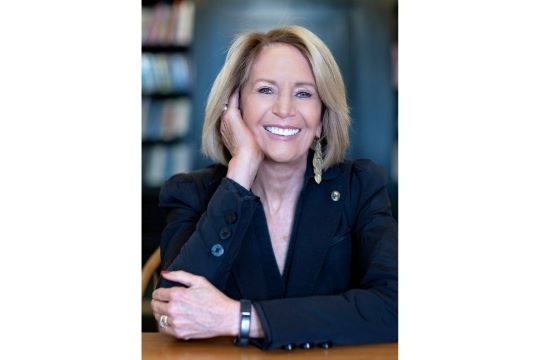
During her tenure, McNutt has overseen many key initiatives and landmark reports on critical issues such as climate change, sexual harassment in academia, research integrity and excellence, strategic science in times of crises, and science education. She also has stepped up efforts to communicate science to the public and combat misinformation.Read more.
Women are indispensable to health and biotech. Yet, they’re still underrepresented.
“On average, women account for 47% of total employees at member companies,” according to BIO’s Right Mix Matters report. “While this overall data on gender representation seems to suggest the industry is approaching parity, a deeper look reveals that women become scarcer in the upper ranks. They make up less than a third (31%) of executive team members and only 23% of CEOs.” Read more.
5 pioneering women of color in STEM you might never have heard of.
In commemoration of International Day of Women and Girls in Science, on February 11, Global Citizen wants to introduce you to five incredible women of color who have shaped (and are still shaping) the course of history through science. Read more.
Sigal Barsade, 56, dies; argued that it’s OK to show emotions at work.
Sigal Barsade was a pioneer in what organizational psychologists call the affective revolution: the study of how emotions, not just behavior and decision making, shape a workplace culture. Read more.
Astia releases Astia Edge pilot findings: Our Failure To Invest in Black Founders, and What We Have Done About It.
These are the findings from a pilot launched when Astia uncovered racial bias within their own investment process. See what VCs can do to level the playing field for black Female Founders here. Read more.
Smithsonian honors female scientists with 120 bright orange statues.
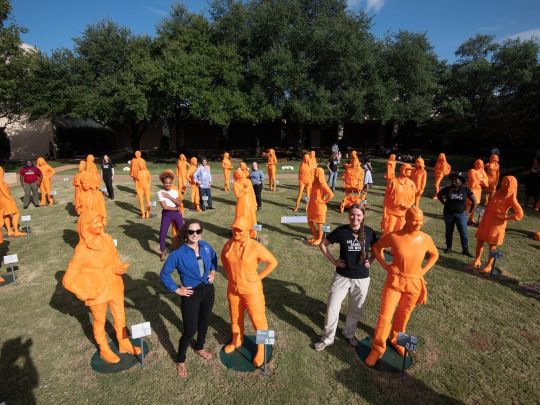
The 3-D–printed figures honor a diverse group of women who have excelled in science and technology, from biologists that track endangered species to astronomers searching for extraterrestrial life. The project is a collaboration between the Smithsonian and If/Then, an initiative “designed to activate a culture shift among young girls to open their eyes to STEM careers.” Read more. Image by If/Then
Pandemic-related barriers to the success of women in research: a framework for action.
Women in academia have fallen behind with publications and grant funding during the COVID-19 pandemic and risk dropping out of the research workforce altogether, unless urgent action is taken by institutes and funders, according to researchers. Read more.
Katalin Karikó: Covid-19 vaccine pioneer urges more girls and young women to take up science.
The pioneering researcher whose work on messenger RNA technology formed the basis for both the Moderna and Pfizer Covid-19 vaccines has urged more girls and young women to follow in her footsteps and forge a career in the sciences. Read more. Click here to view her RFS presentation.
Marianna Limas, Social Media Manager
Nilda Rivera, Partnership and Events Manager
|
|
|
Dear Colleagues,
I am pleased to include another issue of RFS Briefings with some timely and encouraging updates on women in science.
IT WAS TERRIFIC!
The perseverance of women in science has been on full display this past year: they have made seminal scientific discoveries, taken up new leadership positions, started companies, and led the charge in the fight against COVID-19.
The Rosalind Franklin Society celebrates these accomplishments, and many more, by recognizing, fostering, and advancing critical contributions from women in the life sciences and affiliated disciplines in the annual virtual conference Labs, Leaders, Critical Connections.
From groundbreaking research to prestigious awards and recognition, this event provided incredible access to emerging stars as well as those who continue to lead the way.
If you missed this event , it will be available for free on-demand beginning this week. We hope you will watch it (or watch it again!) and share it with your colleagues.
Also, in honor of Black History Month we continue to highlight the leadership and contributions of Black women in science. Please take some time this month to watch several impressive presentations we have hosted in the past year.
Please continue to share important news and opportunities with us so that we may share it with you, and others who are committed to supporting the careers of exceptional women in science.
Stay safe and sound,

Karla Shepard Rubinger
Executive Director
Rosalind Franklin Society
www.rosalindfranklinsociety.org

13 Black women in STEM you should know!
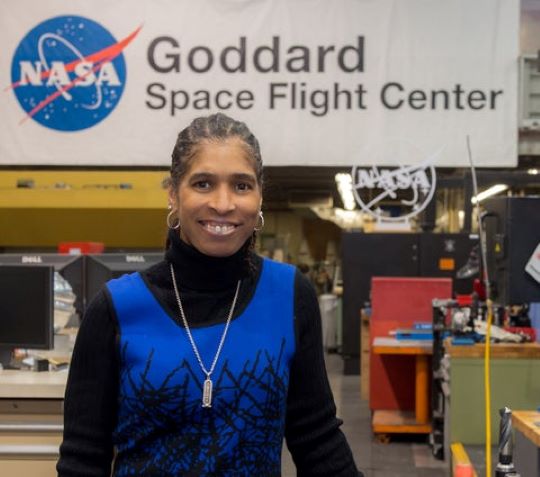
In honor of Black History Month, here are 13 African-American women, from yesteryear to today, who defied insurmountable odds and continue to pay the way forward for the girls who would succeed them. May we see more of them, may we be inspired by them, may we raise them. (Image: Aprille Ericsson-Jackson. Credit: Wikipedia). Read more.
Dr. Carlotta Arthur named new executive director of Division of Behavioral and Social Sciences and Education at National Academies.
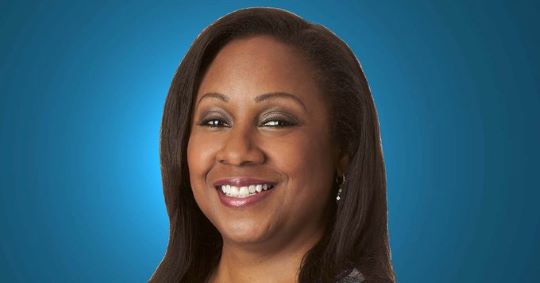
Dr. Arthur comes to the National Academies from the Henry Luce Foundation, where she serves as director of its Clare Boothe Luce (CBL) Program for Women in STEM, which provides significant support for women in science, mathematics, and engineering in higher education and has made more than $200 million in grants since its inception. During her tenure, Arthur has expanded the national and global profile of CBL and the Luce Foundation’s activities to transform STEM systems and structures through the lens of equity and inclusion. Read more.
Celebrating Black Scientists.
From the great engineering feats of African Stonehenge and the Egyptian pyramids, to traffic lights, automatic elevator doors, and gas masks, contributions of Black innovators to society continue to be of astounding significance. The Pacific Science Center worked with the teens in their Discovery Corps program to create Path of Persistence, an exhibit honoring some of the Black and African American scientists whose passion, curiosity and determination led to scientific breakthroughs and inventions that enrich our lives. Read more.
Black History Month: Black trailblazers in science and biotechnology that you need to know.
Throughout Black History Month, Good Day BIO will be highlighting the accomplishments of Black trailblazers in science and biotechnology—here’s a list of 32 you should know. Read more.
Immersive video game explores the history of women at MIT.
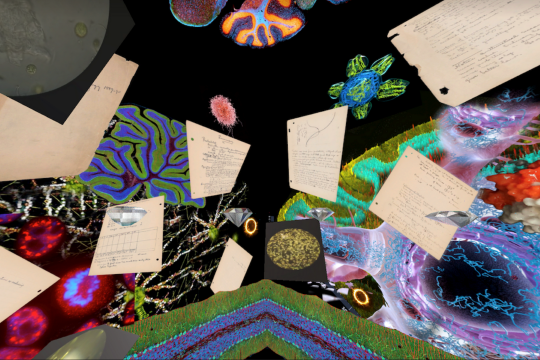
A new video game, "A Lab of One’s Own," creates an immersive environment in which players discover archival materials that tell the stories of women from MIT’s history. “Our goal was to bring these materials into conversation through an engaging virtual space,” says Maya Bjornson. “We felt that by using new digital technologies we could make the archives accessible to a wider audience, and make research feel like play.” Read more.
Jacqueline Barton of Caltech honored by the American Chemical Society.
Jacqueline K. Barton, the John G. Kirkwood and Arthur A. Noyes Professor of Chemistry at the California Institute of Technology, has been named the recipient of this year’s Theodore William Richards Medal Award by the Northeastern Section of the American Chemical Society. Jacqueline, who is on the RFS board, is receiving the award for her work on the chemistry of DNA, in particular, her use of transition metal complexes to examine DNA site recognition and reactions. Read more.
CZI and National Academies of Sciences, Engineering, and Medicine launch science diversity leadership program to recognize and further accomplishments of outstanding science faculty.
“Through this new partnership with the National Academies, we hope to increase visibility and support for faculty of color in biomedicine, including Black, Latina/o/x, and Indigenous faculty, so they can continue to do some of the best science and mentor tomorrow’s leaders,” said CZI Co-Founders & Co-CEOs Priscilla Chan and Mark Zuckerberg. Read more.
Nancy Kanwisher wins National Academy of Sciences Award in the Neurosciences.
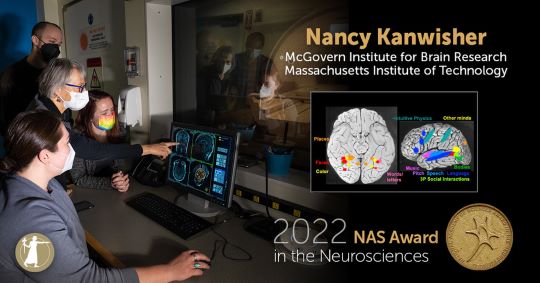
Nancy’s work over the past two decades has argued that many aspects of human cognition are supported by specialized neural circuitry, a conclusion that stands in contrast to our subjective sense of a singular mental experience,” says McGovern Institute Director Robert Desimone. “She has made profound contributions to the psychological and cognitive sciences and I am delighted that the National Academy of Sciences has recognized her outstanding achievements.” Read more.
Four women scholars who have been named to university dean positions.
Tejal Desai is among four women scholars who have been named to university dean positions. Tejal was named dean of the College of Engineering at Brown University (a member of our Council of Academic Institutions) in Providence, Rhode Island, effective September 1. An expert in applying micro- and nanoscale technologies to create new ways to deliver medicine to targeted sites in the human body, Dr. Desai is a professor and a former longtime chair of the department of bioengineering and therapeutic sciences at the University of California San Francisco. Read more.
Florence Bell: the ‘housewife’ who played a key part in our understanding of DNA.
“Taking an X-ray image was not easy. It required ten-hour exposure times, working in a darkened room in close proximity to high electrical voltages and very hot X-ray tubes. But Bell’s skill and tenacity paid off and in 1938, based on the X-ray images she had taken, she and Astbury proposed an early model of the DNA structure. This model later gave James Watson and Francis Crick a vital foothold when they began their own work on DNA,” writes Kersten Hall. Read more.
Lisa Goddard, 55, dies; brought climate data to those who needed it.
“The types of hazards we worry most about with respect to climate change projections — such as droughts, heat waves, inundation events — are happening right now, and we can predict them with weeks to months of lead time, rather than merely projecting how their statistics may change in 50-100 years,” Dr. Goddard said in a 2021 interview for the Columbia Climate School website. Read more.
Marianna Limas, Social Media Manager
Nilda Rivera, Partnership and Events Manager
|
|
Dear Colleagues,
I am pleased to include another issue of RFS Briefings with some timely and encouraging updates on women in science.
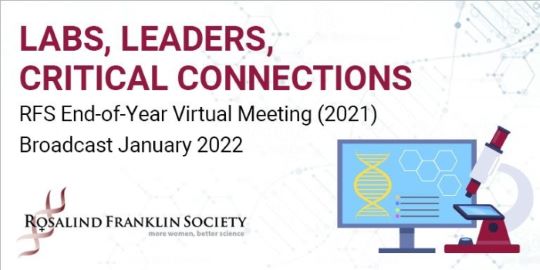
Join us this week for our annual end-of-year virtual conference. During this 3-day, complimentary event (held on January 25, 26, and 27), we will hear insights from leaders in cutting-edge fields such as precision medicine and space exploration to large and small biotech industry leaders, as well as journalists, and new leadership in Washington. Register now.
Please continue to share important news and opportunities with us so that we may share it with you, and others who are committed to supporting the careers of exceptional women in science.
Stay safe and sound,

Karla Shepard Rubinger
Executive Director
Rosalind Franklin Society
www.rosalindfranklinsociety.org

NASA announces new Chief Scientist, Senior Climate Advisor.
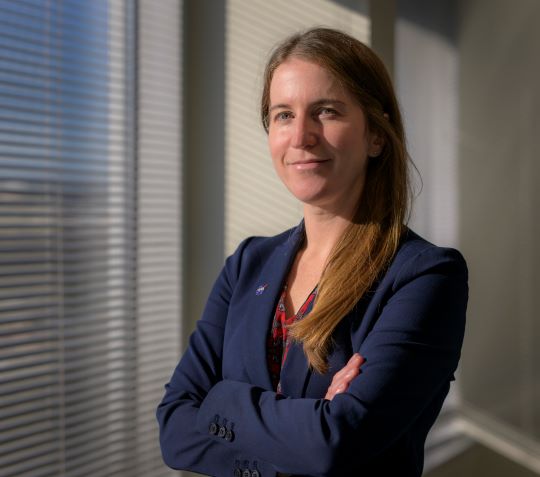
NASA Administrator Bill Nelson announced that Dr. Katherine Calvin will serve the agency in dual roles as chief scientist and senior climate advisor. As chief scientist and senior climate advisor, Calvin will serve as principal advisor to the administrator and other agency leaders on NASA science programs, strategic planning, and policy. Read more. Credits: NASA/Bill Ingalls.
This woman is reshaping our understanding of the living world.
"She could see things nobody else could see—and a lot of them just didn’t fit.” Innovative Genomics Institute’s Microbiology Director Jill Banfield revolutionized our understanding of the microbial world. Get a peek into the mind behind the science in the profile by Hope Henderson in California Magazine. Read more.
'As a black woman in STEM I'm used for photo opportunities'
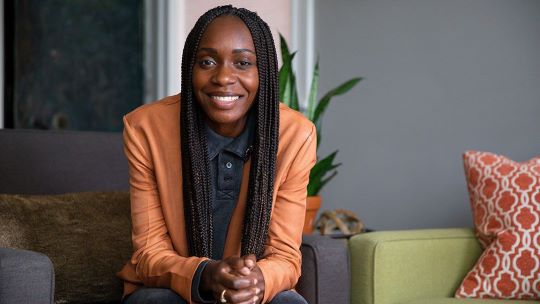 Cynthia Chapple. Image by Tyler Small. Cynthia Chapple. Image by Tyler Small.
When Cynthia Chapple was asked to help out with a photograph of a research professor and his staff, she assumed that she would be the one taking the photo. The image was going to be used by the professor for a grant application. "This was an example of 'Photoshop' diversity, when black women are used for photo opportunities," she tells the BBC, "I was being used to show he worked in an inclusive team and to secure him funding. I was embarrassed." Read more.
Student raises more than $70K to start women's scholarship in response to professor's viral remarks.
Ally Orr, a senior at Boise State University, raised more than $70,000 to establish the Women in STEM, Medicine and Law Scholarship. Orr was inspired to do so after viewing a viral video of one of the university’s professors, Scott Yenor, saying “every effort must be made not to recruit women into engineering” in a speech at the annual National Conservatism Conference. Read more.
Professor Sharon Peacock awarded the MRC Millennium Medal 2021.
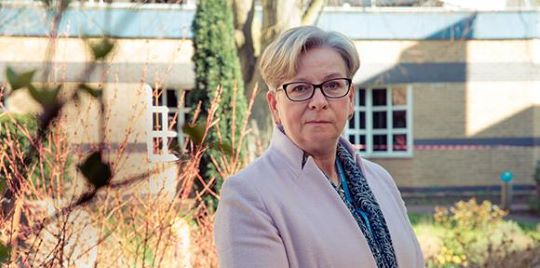
“Professor Sharon Peacock is one of the world’s leading academic clinical microbiologists. Her pioneering work on pathogen sequencing and her visionary leadership of COG-UK have had a profound impact on national and international policy and played a critical role in the COVID-19 pandemic response. Sharon’s commitment to advancing equality, diversity and inclusion in research by leading women in STEM initiatives has been truly remarkable. The MRC is delighted to recognise Sharon’s achievements by awarding her the MRC Millennium Medal 2021,” according to Professor Fiona Watt, MRC Executive Chair. Read more.
Eight women astronomers you should know.
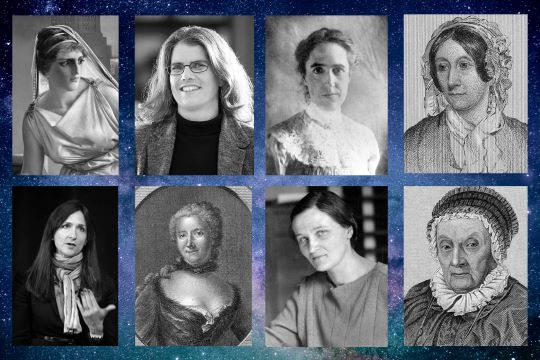 Top Row: Hypatia, Andrea Ghez, Henrietta Leavitt, Mary Somerville. Bottom Row: Sara Seager, Emilie du Chatelet, Cecilia Payne-Gaposchkin, Caroline Herschel.via Wikimedia Commons/JSTOR Top Row: Hypatia, Andrea Ghez, Henrietta Leavitt, Mary Somerville. Bottom Row: Sara Seager, Emilie du Chatelet, Cecilia Payne-Gaposchkin, Caroline Herschel.via Wikimedia Commons/JSTOR
Women astronomers remain a minority and often encounter a lack of recognition, unwelcoming career paths, and harassment. But today women participate and publish in astronomy and astrophysics at higher rates than in physics overall, producing world-class research, writes Sidney Perkowitz. Read more.
The Mark Foundation for Cancer Research announces 2022 Emerging Leader Awards.
The Mark Foundation for Cancer Research has awarded seven grants to promising early-career investigators for projects aimed at addressing unmet needs in cancer research. Each Emerging Leader Award is $250,000 per year for three years, totaling $750,000. Since its founding in mid-2017, The Mark Foundation has awarded over $20 million to 28 early-career scientists with Emerging Leader Awards. Read more.
Dillard University Virtual Town Hall: Successes in STEM Education, Research, and Workforce Preparedness.
During this town hall event, you will hear from faculty and leaders about the strategies that have enabled Dillard students to realize their dreams of entering and succeeding in STEM professions. This event is one in a series of town halls the National Academies is conducting in collaboration with Minority Serving Institutions (MSIs) to promote the findings of the 2019 National Academies report, Minority Serving Institutions: America’s Underutilized Resource for Strengthening the STEM Workforce. Read more.
These scientists are racing to beat omicron.
HHMI scientists are joining many of their colleagues worldwide in working to combat the new coronavirus. They’re developing diagnostic testing, understanding the virus’s basic biology, modeling the epidemiology, and developing potential therapies or vaccines. Read more.
Deborah Nickerson, pioneering genome researcher, dies at 67.
Deborah Nickerson, a human genomics researcher who helped discover genes responsible for cardiovascular disease, autism and Miller syndrome, a rare condition that causes malformations of the face and limbs, died on Dec. 24 at her home in Seattle, Richard Sandomir reports. Read more.
Cancer researcher Beatrice Mintz Dies at 100.
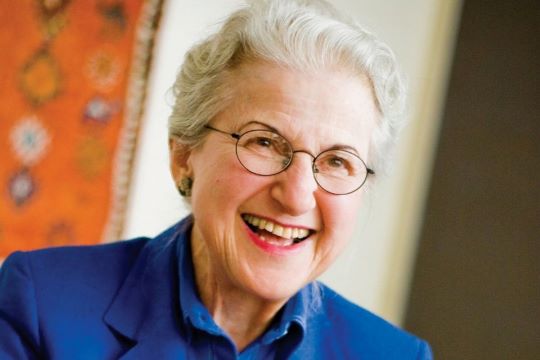 Beatrice Mintz. Photo: Fox Chase Cancer Center/The Scientist. Beatrice Mintz. Photo: Fox Chase Cancer Center/The Scientist.
Beatrice Mintz, a pioneering cancer researcher and developmental biologist whose findings helped pave the way for less harmful chemotherapy and radiation treatments, died on January 3 in her home in Elkins Park, Pennsylvania. She was 100 years old, Natalia Mesa reports. Read more.
Rosalind Franklin Mars rover set for September launch after landing tests.
The UK-built ExoMars Rosalind Franklin rover is set for launch in September after a series of successful tests, including driving off its landing platform. “The Rosalind Franklin rover showcases some of the best of the UK’s space sector and its search for signs of life on Mars will inspire future generations of scientists and engineers,” said Sue Horne, head of space exploration at the UK Space Agency (UKSA). Read more.
Are you changing the world? Do you know a woman who is? JOURNEY is accepting Fellow nominations and applications!
JOURNEY is accepting Fellow nominations and applications. They are seeking applications and nominations for accomplished innovators who have exceptional potential to achieve higher levels of power and make sustainable impact. Read more.
A physicist’s lessons about race, power, and the universe.
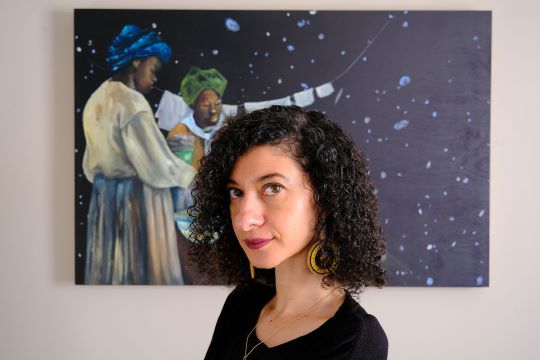
Chanda Prescod-Weinstein, a professor at the University of New Hampshire, explores how society and physics influence each other in her book The Disordered Cosmos. Neel Dhanesha recently asked Prescod-Weinstein about being one of the few Black women in her field, how concepts from physics apply to our lives, and why dark matter is a complicated metaphor. Photo courtesy of Chanda Prescod-Weinstein (via Vox). Read more.
The Angelika Amon Young Scientist Award.
The Angelika Amon Young Scientist Award at MIT's Koch Institute is an endowed prize established in 2021 by family and friends to support two graduate students from institutions outside the United States who embody Dr. Amon’s infectious enthusiasm for discovery science. The Amon Young Scientist Awards are open to applications from mid- to late-stage graduate students pursuing advanced degrees in the life sciences or biomedical research at non-US institutions. And she was a distinguished member of the RFS Board. Read more.
2020 Pearl Birnbaum Hurwitz Award Ceremony honors Hoonani (Nani) Cuadrado.
This special virtual ceremony celebrates Hoonani (Nani) Cuadrado, the 2020 recipient of the Gold Foundation’s Pearl Birnbaum Hurwitz Humanism in Healthcare Award. This prestigious annual award honors a woman who exemplifies humanism and has advanced, through her scholarship, advocacy, leadership or work, the well-being of underserved or at-risk populations in the healthcare arena. Read more.
Marianna Limas, Social Media Manager
Nilda Rivera, Partnership and Events Manager
|
|
Dear Colleagues,
I am pleased to include another issue of RFS Briefings with some timely and encouraging updates on women in science.
The perseverance of women in science has been on full display this past year: they have made seminal scientific discoveries, taken up new leadership positions, started companies, and led the charge in the fight against COVID-19.
The Rosalind Franklin Society, celebrates these accomplishments, and many more, by recognizing, fostering, and advancing critical contributions from women in the life sciences and affiliated disciplines in the annual virtual conference Labs, Leaders, Critical Connections.
From groundbreaking research to prestigious awards and recognition, this free virtual event provides you with incredible access to emerging stars as well as those who continue to lead the way.
This free event will take place online over three half-days: January 25th, 26th and 27th, 2022 from 2:00pm to 5:00pm ET.
Please continue to share important news and opportunities with us so that we may share it with you, and others who are committed to supporting the careers of exceptional women in science.
Stay safe and sound,

Karla Shepard Rubinger
Executive Director
Rosalind Franklin Society
www.rosalindfranklinsociety.org

Calling all postdoc women in science! Applications for the 2022 L'Oréal USA For Women in Science fellows are now open.
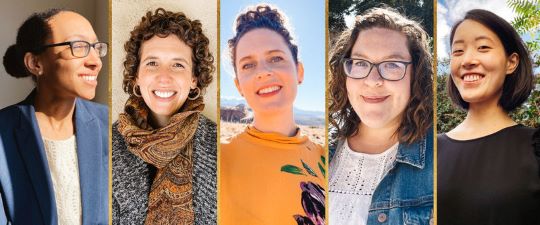
The L’Oréal USA For Women in Science fellowship program awards five women postdoctoral scientists annually with grants of $60,000 each for their contributions in Science, Technology, Engineering and Math (STEM) fields and commitment to serving as role models for younger generations. Read more. Image: The 2021 L'Oréal USA For Women in Science Fellows.
Elizabeth Holmes verdict: researchers share lessons for science.
Elizabeth Holmes, the infamous biotech chief executive who promised to revolutionize blood testing, has been found guilty of fraud. The precedent set by the jury’s verdict in the Holmes case might ultimately compel biotech entrepreneurs to be more cautious — and honest — in their approach to investors, writes Emily Waltz. Read more.
Board diversity increased in 2021. Some ask what took so long.
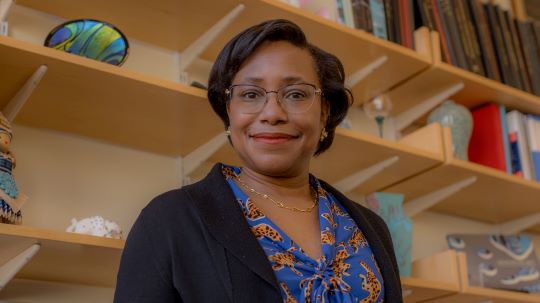
Paula T. Hammond, who heads the chemical engineering department at MIT, was first sounded out about joining the board of a public company in 2020. Photo by Lauren O’Neil for The New York Times.
Under pressure to achieve more diversity in senior ranks — from advocates for social change and, at times, their own employees — companies appear to be discovering that a big talent pool of nonwhite people and women for board seats does, in fact, exist. Paula T. Hammond’s work makes her a natural pick to sit on the board of a pharmaceutical or biotechnology company. Yet it was only in 2020 that Dr. Hammond became a director of a publicly traded company. Read more.
An evangelical climate scientist wonders what went wrong.
Katharine Hayhoe, whose most recent book is “Saving Us: A Climate Scientist’s Case for Hope and Healing in a Divided World,” has become a sought-after voice for climate activism and a leading advocate for communicating across ideological, political and theological differences, writes David Marchese in an article for the TheNew York Times. “For many people now, hope is a bad word,” says Hayhoe, the chief scientist for the Nature Conservancy as well as a professor of political science at Texas Tech. “They think that hope is false hope; it is wishful thinking. But there are things to do — and we should be doing them.” Read more.
Opinion: I helped develop COVID-19 vaccine, let's reach unvaccinated by listening not shaming.
Kizzmekia S. Corbett is an assistant professor of immunology and infectious diseases at the Harvard T.H. Chan School of Public Health and led the team at the National Institutes of Health that designed and developed an mRNA COVID-19 vaccine in collaboration with Moderna. “I don’t go around aggressively proselytizing for vaccines; that would just alienate people. If I did, even some people in my family would have been alienated by now,” wrote Dr. Corbett in an article for USA Today. Read more. Photo by Kent Dayton for Harvard Public Health.
Chemistry textbooks still portray men as scientists while women perform domestic duties.
School chemistry books overwhelmingly focus on men, and when women are included they are often portrayed doing domestic activities rather than science, an analysis from the UK and Ireland has found. Read more.
The University of Washington computer science school denounces retired professor’s tweet on women hires.
The University of Washington’s Paul G. Allen School of Computer Science repudiated a tweet by one of its emeritus faculty members who claimed that “half of the female STEM faculty in the U.S. were hired over more qualified men.” Read more.
The female ‘data lads’ crunching Covid numbers and keeping us informed throughout the pandemic.
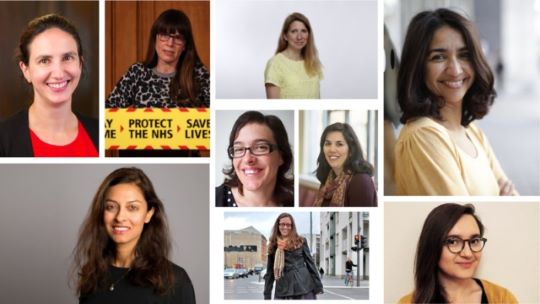
Men have indeed been doing crucial Covid number-crunching, but because the pandemic did start a long time ago but not as far back as the Dark Ages, swathes of women have been doing it too, writes Kasia Delgado. Read more.
Stanford research reveals a hidden obstacle for women in academia.
Analyzing nearly 1 million doctoral dissertations, researchers found widespread bias against research that simply seems feminine, even if it’s not explicitly about women or gender. Read more.
Women in science textbooks.
In a study led by Ellen I. Damschen, the authors suggest that leaving women out of textbooks used in the undergraduate curriculum discourages them from developing their abilities in science. “While most blatant forms of sexism, such as the use of gendered pronouns and terminology, have been removed from modern science texts, more subtle forms, such as omitting contributions by women scientists or issues of central interest to women, still frequently occur.” Read more.
Marianna Limas, Social Media Manager
Nilda Rivera, Partnership and Events Manager
|
|
Dear Colleagues,
I am pleased to include another issue of RFS Briefings with some timely and encouraging updates on women in science.
The RFS Year-end virtual conference is in the works!
We are in the process of taping an impressive agenda which will share insights from cutting-edge fields such as precision medicine and outer space, from industry including corporate leadership and start-ups, as well as experience from journalists and new leadership in Washington.
These productions will be shared through broadcast on January 25th, 26th, and 27th, 2:00-5:00 p.m. (EST).
A link for registration will be posted soon. We know you will want to hear these presentations from prestigious scholars, authors, award winners, government leaders from CDC, OTPS, NASA, and the casting producer from Shark Tank!
Please continue to share important news and opportunities with us so that we may share it with you, and others who are committed to supporting the careers of exceptional women in science.
Stay safe and sound,

Karla Shepard Rubinger
Executive Director
Rosalind Franklin Society
www.rosalindfranklinsociety.org

Vaccine scientists are TIME’s 2021 Heroes of the Year.
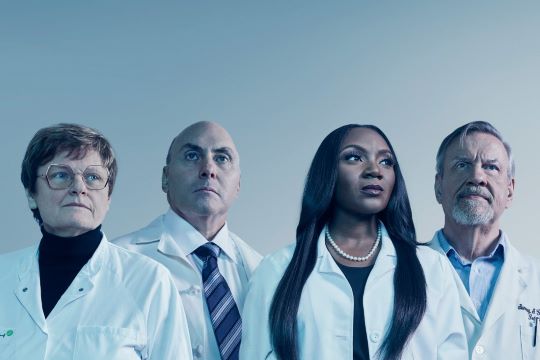 Photograph by Mattia Balsamini. Photograph by Mattia Balsamini.
Katalin Kariko, Drew Weissman, Kizzmekia Corbett, and Barney Graham achieved a breakthrough of singular importance, introducing an innovative and highly effective vaccine platform, based on mRNA, that will impact our health and well-being far beyond this pandemic. And make sure you watch the compelling interview with Dr. Kariko which RFS hosted on July 23, 2020. Read more.
Shirley McBay, pioneering mathematician, is dead at 86.
Shirley McBay, who in 1966 became the first Black person to receive a doctorate from the University of Georgia, and who went on to be a leading voice for diversity in science and math education, died on November 27 at her home in Los Angeles. She was 86. Read more.
Nature’s 10: Ten people who helped shape science in 2021.
The Nature’s 10 list explores “key developments in science this year and some of the people who played important parts in these milestones. Along with their colleagues, these individuals helped to make amazing discoveries and brought attention to crucial issues. Nature’s 10 is not an award or a ranking. The selection is compiled by Nature’s editors to highlight key events in science through the compelling stories of those involved.” Read more.
Female founders are crashing the billionaire club.
As the women who created Bumble, Spanx, and 23andMe achieve new levels of wealth and success, can they open the door for the female entrepreneurs coming behind them? Maria Aspan and Emma Hinchliffe find out. Read more.
Event: Using Philanthropy to Spark Government Innovation.
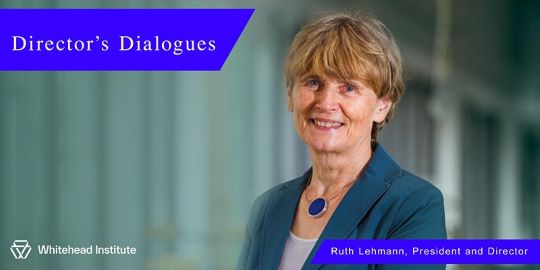
Join Ruth Lehmann, Director of the Whitehead Institute, and Jill Shah, President of the Shah Family Foundation, as they discuss philanthropy as a catalyst for government innovation in the areas of nutrition, education, and economic support. What trends in science and technology excite them the most? Which innovations have the potential to dramatically impact the way we live and work? Be a part of the conversation on Tuesday, January 18, 2022 at 7:00 PM (ET). Read more. “You can watch Dr. Lehmann’s presentation for RFS here.
Welcome to the 2021 NIH Director's Awards.
Please join us in congratulating the 2021 NIH Director’s Awards recipients. These individuals are being recognized for their outstanding contributions to support the mission of the National Institutes of Health. To browse the 2021 recipient list, visit the website.
June Lindsey, another forgotten woman in the story of DNA.
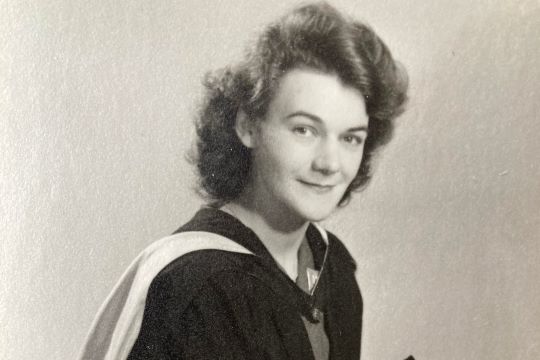
Her discovery of adenine and guanine’s structure was a key part of solving the DNA double helix puzzle – yet her contributions are almost forgotten. ‘I think that it could be argued that her work was as a sine qua non – without which would not be possible the DNA structure,’ says Alex MacKenzie, a professor of paediatrics at the University of Ottawa in Canada who first met Lindsey at a family birthday party and wrote an article about her in 2018. Read more. Image: The Globe and Mail.
Call for nominations: The Victoria's Secret Global Fund for Women’s Cancers 2022 Meritorious Awards, in partnership with Pelotonia and AACR.
The Victoria’s Secret Global Fund for Women’s Cancers 2022 Meritorious Awards, In Partnership with Pelotonia & AACR are intended to foster innovative research aimed at transforming outcomes for breast and gynecologic cancers, while also serving as an investment in the next generation of female cancer researchers worldwide. All award recipients will receive $100,000 and be formally recognized during the AACR Annual Meeting 2022 (AM2022) and Annual Pelotonia Signature Event Weekend. Read more.
Once shunned in Antarctica, female scientists are now doing crucial polar research.
“On top of institutional challenges, scientists increasingly have to contend with public and government hostility—at times even harassment—when they work on socially contested subjects such as environmental science, the effectiveness of gun control and public health,” writes Naomi Oreskes. Read more.
Salk Women & Science.
Salk Women & Science held a virtual event on December 1, 2021, which featured a scientific presentation by new Salk faculty member Assistant Professor Christina Towers on “Blocking Cancer Cell Metabolism” and her lab’s groundbreaking cancer research. Read more.
Check out headliners for London's WOW Festival.
Each year, to mark International Women’s Day on 8 March, world-class speakers, activists and performers come together for WOW – Women of the World Festival. Read more.
Female physicians earn an estimated $2 million less than male physicians over a simulated 40-year career.
Analyzing data from more than 80,000 full-time physicians, Christopher Whaley and coauthors found that male physicians earn approximately $2 million, or 25 percent, more than female physicians over the course of a simulated forty-year career. Read more.
BBC 100 Women 2021: Who is on the list this year?
The BBC has revealed its list of 100 inspiring and influential women from around the world for 2021, including 22 working on science & health. Among them are Malala Yousafzai, the youngest ever Nobel Peace Prize laureate, Samoa's first female prime minister Fiamē Naomi Mata'afa, Professor Heidi J Larson, who heads The Vaccine Confidence Project, and acclaimed author Chimamanda Ngozi Adichie. Read more.
New York Life Investments launches impact investing ETFs targeting clean transport, oceans, gender equality.
The new funds, focused on the themes of gender equality, clean oceans, and clean transport expand the company’s Dual Impact family of thematic investment strategies. Read more.
Marianna Limas, Social Media Manager
Nilda Rivera, Partnership and Events Manager
|
|
|